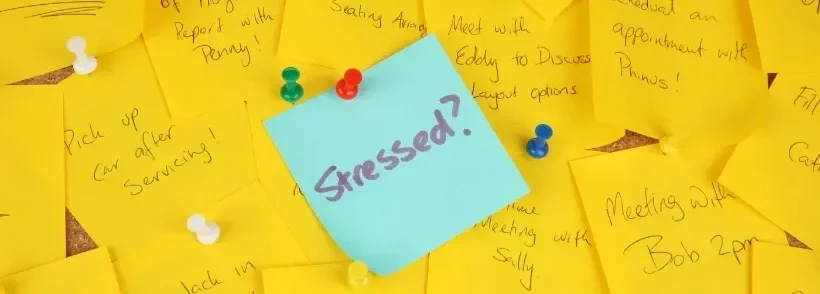Some tips to help combat work stress
Reducing business stress
If you own a business, you know it can be stressful. It’s especially stressful if you’re doing it by yourself and don’t have a business partner to brainstorm and bounce ideas off. There may be decisions, cashflow, or other things that are making you feel stressed, or affecting your sleep.
You can feel isolated and that there is no one you can ask for help, or you don’t know who to ask for help. We hope these tips can help to reduce your stress levels.
Some tips for reducing stress
1. Schedule ‘me’ time in your diary
Whatever your ‘me’ time looks like – working up a sweat at the gym, swimming, walking, or daily meditation, clearing your mind with exercise and time out can help you have ‘time out’ and make the transition from ‘work’ to ‘home’ mode. Make a point of prioritising things that make you happy and reenergise you, as these things can help you be more effective at work.
2. Make a plan
Whatever the issue or stress your business is facing, write down the goals, or actionable items, you need to achieve to make it happen. Break the longer-term goals down into short-term goals/actions. Set time aside each week to check in and see how you’re tracking on achieving your goals, so you can make adjustments where necessary. If you find the thought of this overwhelming, ask a trusted friend or mentor for help. Sometimes it’s hard to see clearly when you’re in it – a different perspective can make all the difference.
3. Set boundaries
You don’t have to be everything to everyone, all the time. And realistically, you can’t be everything to everyone. Decide what is important to you and prioritise your top 3 or top 5 things. You don’t have to say yes to every invitation, job, or commitment. Figure out which ones you do want to do and let the others go. Only take on commitments that you’ll really enjoy doing and remember, ‘No’ is a full sentence – an explanation is not necessary. Learn to use it more.
4. Celebrate your wins
Celebrate both the big and small wins. At the end of each week/fortnight/month, celebrate your wins by writing them down on strips of paper and popping them in a jar. Then, on the days when you’re feeling stressed and things seem overwhelming, you can look back at your wins which can help keep things in perspective.
5. Turn off your phone at night
You don’t expect other people to be available 24/7, so make a point of turning off your phone at night. If you struggle to resist the urge to reply to emails or to “getting a head start on tomorrow” put your phone in a different room. Spend your time doing things to recharge your battery such as reading a book, listening to music or a podcast, or spending time connecting with family and friends. You might need to invest in an old school alarm clock, but leaving your phone out of the bedroom will help you relax and get a better night’s sleep.
6. Remember “this too shall pass”
When you’re in the thick of it, things can sometimes feel overwhelming. Remember the phrase “this too shall pass” can be helpful, giving you a sense of a finite time period, even if you don’t know how long the time period will be. It doesn’t mean it won’t be stressful or require hard decisions, but given time all things generally come to some sort of conclusion and, in hindsight, you may wonder why you let yourself get stressed.
If you’re needing a sounding board for your ideas or any challenges that you’re facing, get in touch with us to discuss how we can help you navigate these changes. Sometimes a problem shared is a problem halved. At the very least, you’ll get a new perspective on the situation which could be all you need to make progress and reduce your stress.

